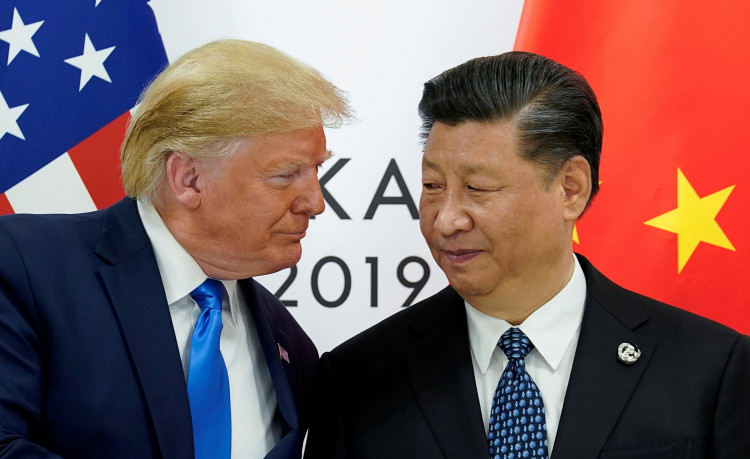China's direct investment in the US dropped to its lowest point since the Great Recession last year, well before the coronavirus pandemic ravaged much of world trade.
The downturn in China's US investment mirrored strains between the world's two economic superpowers and limits on overseas investment by the Chinese government.
A document by the National Committee on China-US ties and the consultancy Rhodium Group on Monday found that China's direct trade ventures in the US fell from $5.3 billion in 2018 to $5 billion in 2019, the lowest number since the 2009 economic collapse.
The report attributed the investment slowdown to Chinese outbound capital constraints, more US regulatory scrutiny, slower Chinese economic development, and growing frictions between Beijing and Washington.
Relations between the two nations have worsened in recent weeks, as the novel coronavirus has spread across the globe, claiming the lives of over 276,000 people and sickening more than 4 million people.
The coronavirus was first identified in China late December last year and Chinese health authorities responded by taking steps that many deemed draconian to control the outbreak - like locking down cities, halting public transit and closing down businesses. Those acts led to a fall in demand for products and services in China, one of the largest consumer markets in the world.
The ongoing health crisis could also undo the positive effects of the Phase 1 trade accord signed in January by stifling deal-making and hurting economic development, the report disclosed.
Preliminary information suggests a major fall in Chinese investment into the US in the first months this year, the study revealed, with $200 million in newly reported direct investment compared to an average of $2 billion per quarter in 2019.
Chinese direct investment includes acquisitions, corporate consolidations and investments in assets like factories but not monetary investments such as purchases of bonds and shares.
US President Donald Trump on Friday disclosed that he was unsure whether to terminate the so-called Phase 1 China-US trade agreement, just moments after top commerce officials from the two sides vowed to move forward with enforcing it amid the economic devastation caused by the pandemic.
Trump, who blamed China's initial management of the Wuhan outbreak in late 2019 for causing thousands of deaths and millions of job losses in the United States, has threatened to cancel the trade agreement if China fails to meet its purchasing obligations.
China's investment in the US climbed in 2016 in the midst of a rally in overseas deals. Trade regulators have since imposed tighter measures on what they claim as irrational foreign investments.






